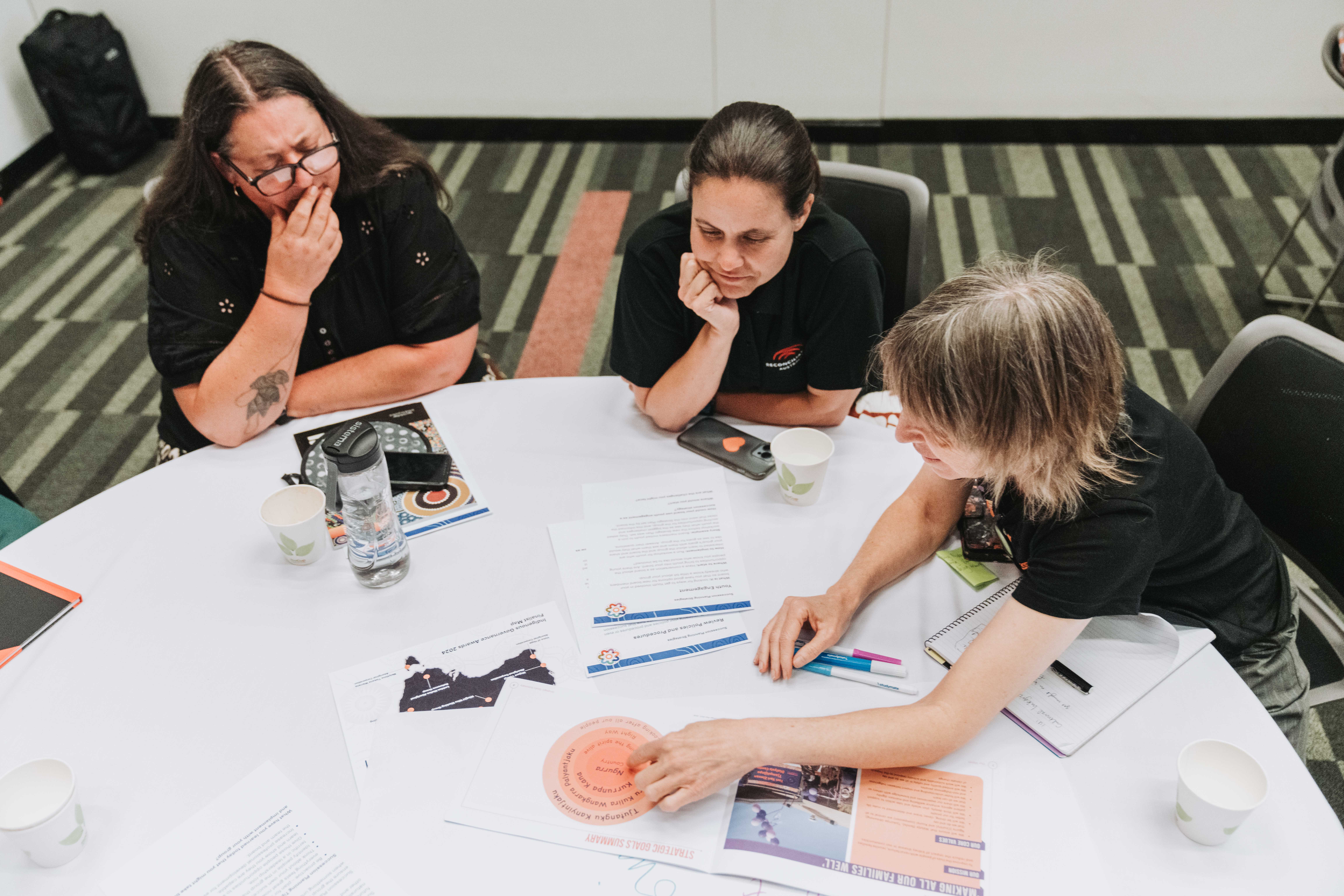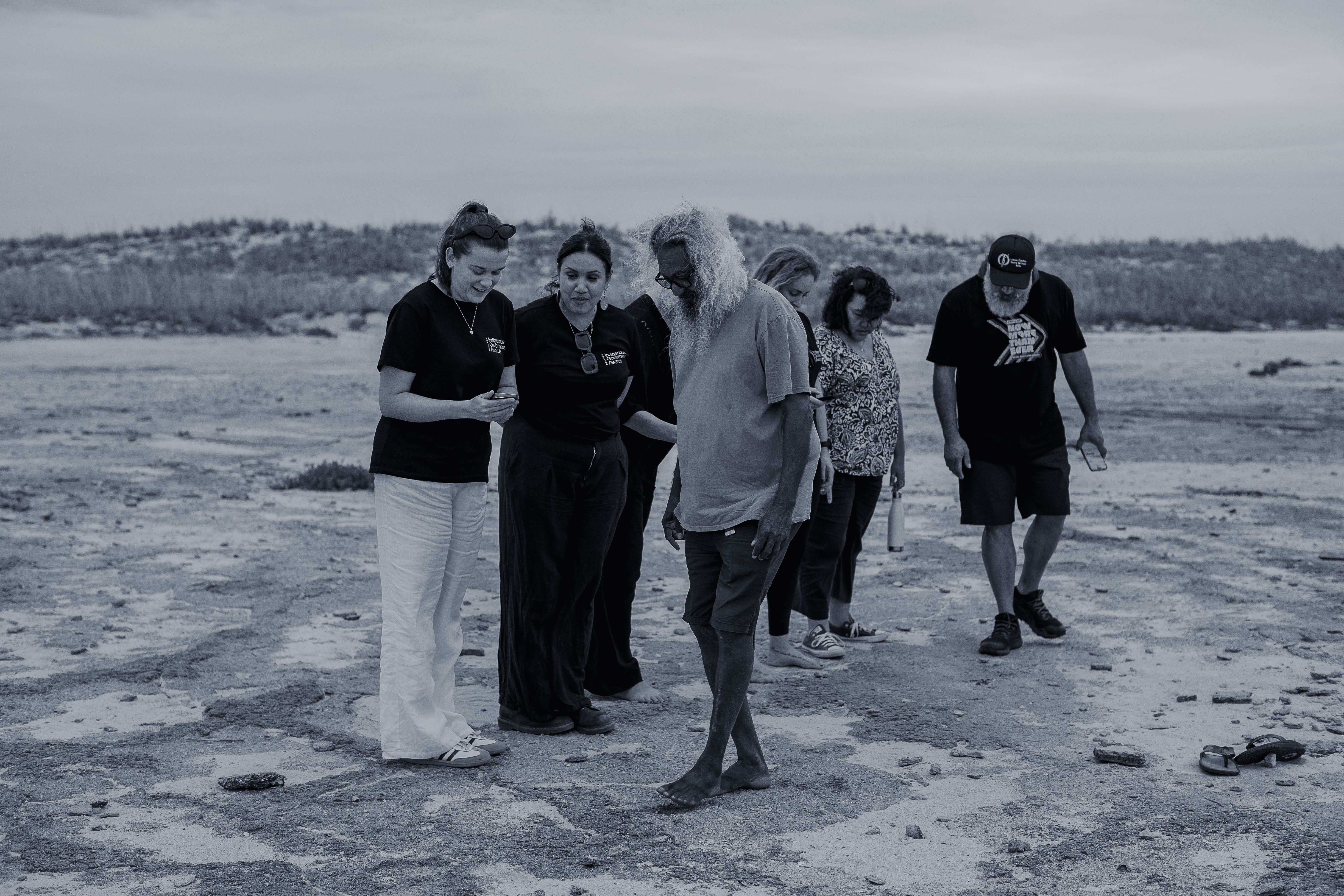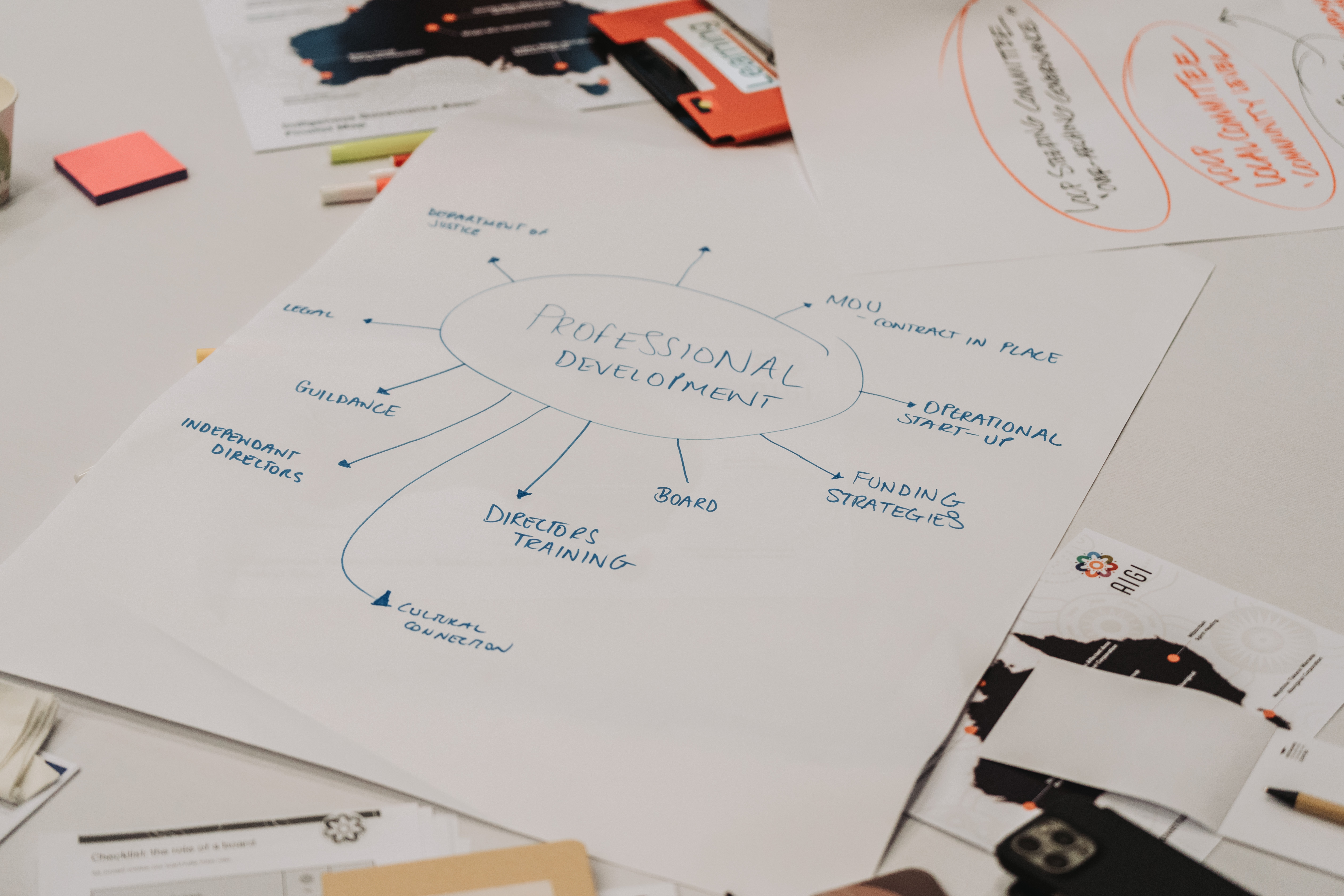To help Aboriginal and Torres Strait Islander corporations understand what Data Sovereignty means and why it matters...
Your people overview

In this section, we discuss the core roles and responsibilities of your people. Because many groups today exercise their self-governance through incorporated organisations, we focus this section on the key people who take on governing roles and responsibilities in such organisations, and their relationships with each other. This includes your board, directors, management, staff and members. We also look at how you manage relationships within your group and the importance of having strong and fair representation.
Your key players
Whether your group is informal or formal, incorporated, or unincorporated, at its core are people. Each person has their own roles and responsibilities, and relationships with one another. In this topic, we introduce the key players in an organisation, community or nation. These are your board, management, staff and community members.
Members
In this topic, we look at the important role members play in an organisation, community or nation. We also focus on what it means to be a member of an organisation and discuss some of the rights that people have as an organisation member.
→ Members
Board of directors
In this topic, we introduce you to the roles and responsibilities of the board of directors. We look at best practices for boards and ways to improve your own board’s effectiveness. We also look at the roles, rights and responsibilities of individual directors.
CEO and managers
In this topic, we look at the role and responsibilities of managers and the chief executive officer (CEO). We also discuss the importance of separation of powers, and how a CEO and board should interact.
Staff
In this topic, we discuss how to attract and retain staff. This includes employing and investing in Aboriginal and Torres Strait Islander staff. We also look at ways you can develop your staff and create a healthy workplace culture.
→ Staff
Relationships
We look at some of the different kinds of relationships that you are likely to encounter when working in, with or for an Aboriginal or Torres Strait Islander organisation, community or nation. We consider what a healthy relationship looks like, and how you can work to build and maintain them. We also cover strategic external partnerships, what to expect from an ‘ally’, and making the most of the networked governance style typical of First Nations relations.
Diversity, equity and inclusion
In this topic, we explore why diversity, equity and inclusion matter for your organisation, community or nation. We also look at some of the challenges and opportunities that representation brings.
→ Diversity, equity and inclusion
First Nations women in governance
In this topic, we look at the important role Aboriginal and Torres Strait Islander women play in governance and as leaders. We discuss some of the major challenges they face and provide tips to help your organisation, community or nation support women in governance. This topic is not only for women – women in leadership is everyone’s business.
→ First Nations women in governance
Whether your group is formal or informal, incorporated, or unincorporated, at its core are people. These include directors, managers and staff members who each take on different governing roles and responsibilities. Ensuring diverse representation among your people is a key part of effective governance.
This factsheet offers an overview of Your people. For more in-depth knowledge, explore the additional resources in the Toolkit.
Women play an important role in strengthening their families and groups. Harnessing their skills, cultural knowledge and experience makes governance healthier and stronger.
This factsheet offers an overview of First Nations women in governance. For more in-depth knowledge, explore the additional resources in the Toolkit.
We’ve translated our extensive research on Indigenous governance into helpful resources and tools to help you strengthen your governance practices.
Stay connected
Subscribe to AIGI news and updates.












.png)


